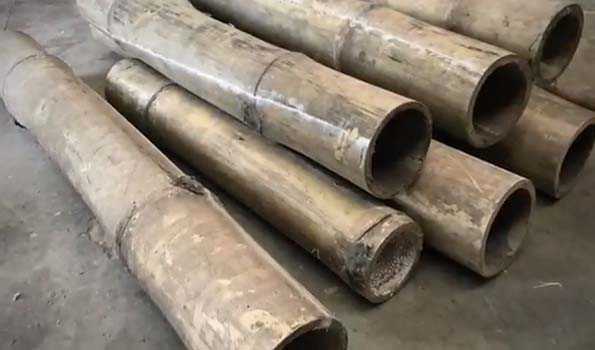Tripura is endowed with rich and diverse bamboo resources: Need investors’ for bamboo industry
Udaipur, Sep 26: Tripura is endowed with rich and diverse bamboo resources.
Tripura accounts for about 6 per cent of bamboo sticks used for making incense sticks in India, said a report published by ICFA.
According to report of Indian Council of Food and Agriculture, the state Tripura has favorable climatic conditions for cultivation of various fruits and horticultural crops. Around 21 of the 130 bamboo species known in India are grown in the state. It is also the second largest natural rubber producer in the country after Kerala.
‘Special focus is being given to value addition to non-timber forest produce and promotion of the bamboos for giving more economic return to rural people. Bamboo resource mapping of Tripura completed using Remote Sensing and GIS. Developing 500 skilled artisans in bamboo-based crafts such as lathe turning products, bamboo basketry, bamboo ornaments, bamboo furniture and bamboo mats. Here in Tripura created 233.70 ha Bamboo Plantation. Total area of plantation done by TFDPC Ltd. is 9441.66 ha, reported Forest Department, Tripura,
On behalf of state government of Tripura, informed that the state Government has provided Rs 50.00 lakhs towards Share Capital for strengthening the TMARKFED during the year 2015-16. Ministry of Tribal Welfare, Govt. of India has been providing funds as grant-in-aid to Tripura MARKFED since 2007-08 for procuring Arjun flowers etc. In addition, Tripura MARKFED also procures Bamboo, Incense stick, Bamboo mat etc. with their own funds.
The State Govt. has launched Tripura Bamboo Mission in PPP mode, for integrated development of Bamboo sector in Tripura. The implementation of the Project started in August 2007. The Mission is focused on development of 4 sub-sectors, namely, Bamboo Plantations, Bamboo Handicrafts, Bamboo Incense Sticks and Bamboo Industrial Applications. The catalytic role played by TBM has resulted in increased turnover as well as livelihood generation. Value addition is taking place in Agarbatti sector, new handicraft products have been designed and launched, marketing of products has been organized.
The report provided by Forest Department, Tripura, the total turnover of the bamboo sector across the identified subsectors in the State has increased from the base levels of Rs. 27.90 crores in 2006-07. The turnover was 83.7 crore during the FY 2015-16 which has increased to over Rs. 96.53 cr. during 2016-17. Institution Development: The artisans & producers are being organized to form their own grassroot institutions. So far, more than 1000 SHGs, 60 Producer Societies/ Cooperatives and community owned institutions have been supported and promoted by TBM since 2007. Around 100 new Bamboo Farmer’s Groups are also being promoted under the bamboo plantation activity in new areas.
The State has also tremendous potentiality for bamboo based industries including traditional handloom and handicraft industries. Moreover, the State is a traditional tea growing State, which has ample scope for improvement by adopting modern technology.
Tripura is the third smallest State of the Country in the North Eastern Region with total area in 10,491 s.q. Princely, State Tripura ruled by Kings later on merged with India on 15th October, 1949. The State is surrounded by Bangladesh in South, West and North. At the East side neighboring State Mizoram and Assam. Tripura is full of natural resources like medicinal plant as well as Bamboo and Oranges are commonly nurtured in our State.
The department of Industry and Commerce, Government of Tripura has informed to UNI that Tripura has not been able to attract desired private investments in this industrial sector from rest of the country and therefore, remained an industrially backward state due to its unique economic disadvantages arising out of remoteness and poor connectivity, hilly terrain, weak resource base, poor infrastructure, as well as shallow markets. Need more private investment for development of Tripura.
UNI.


Comments are closed.